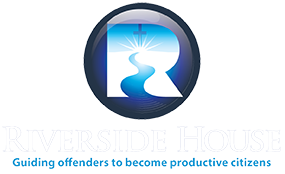By Cleveland Bell, Riverside House CEO
After being clean for 49 years and recently getting my 49th medallion for AA, I am asked often HOW I did it. There are so many factors here, and there’s no right or wrong answer. I have my own experience though, and I’ve seen many others walk through the recovery process, so I’ve narrowed it down to the top most important things you can actually DO for recovery.
First, it’s extremely important to make regular meetings a priority in your life and your recovery. In recovery, or anything else in life really, we often find ourselves at a crossroads. We don’t want to go back where we are, but we may lose traction if we aren’t careful. We often get in trouble when we don’t keep going to meetings regularly, but it can get boring hearing the same people give the same testimonies. Even though I have my home group, I’ve found it helpful to change rooms every once in a while. I meet new people and hear new stories, so it keeps meetings from feeling so monotonous. I also look for retreats or workshops I can attend. Expanding this idea of what a meeting is has helped me maintain my sobriety.
Another thing about attending regular meetings is that when I go into an AA or NA room, two things happen. I am reminded and encouraged, two very important things, because we have a tendency to forget. We’re doing better, and we forget how difficult the hard times really were. But when other people who are still struggling every day come into the rooms, it reminds me that I was once there and I can go back there if I don’t keep practicing what I’m learning. So I am reminded of the past and encouraged that I am on the right path. It always takes work though, and it will never automatically happen. You have to stay honest with yourself and others, you have to be open to change, and you have to stay vulnerable.
It’s easy to say you’re practicing what you’re learning, but what does that actually mean? For me, one big aspect was, and continues to be, asking for help. Simply going to meetings regularly is a form of asking for help.
In the classic example, think about asking for directions. When traveling with my wife, it is always so hard to stop when I’m not sure where I’m going. Asking for help in any situation is difficult. It becomes difficult when I have to admit that I don’t know something or that I was wrong, then I have to lean on someone else for help. It’s a process. I have to open myself up to feeling uncomfortable or vulnerable. We may never become totally comfortable with this, but the more you do it, the easier it will be. Again, the more you go to meetings, the more you will be comfortable there too.
You will also be more likely to find people to walk through the process with you, especially in these three areas:
- Trust. A key component here is that you have to trust others. Again, this takes practice. You also have to learn to use proper discretion. Sometimes, we can be so desperate for help that we dump too much on someone too fast. Instead of doing that, you have to trust the process, trust yourself, and trust others.
- Listen. With this process, listening skills are important and something else we must practice. In my experience, people often want to just listen to themselves talk when they really would benefit from listening to the other person they are placing their trust in. Take time to really listen to the questions and understand what the other person is asking before you answer. I know that when I don’t really listen, I tend to come up with my own answers, which is not always accurate.
- Hear. Really hear. While listening is important, sometimes it’s more about actually hearing what is said. Oftentimes, the answer I’m looking for is right there. It’s not always some great, deep, dark secret I have to uncover. If I truly listen, I will hear my answer.
I once had a friend named Sarah, and she was one of the first people who I felt really listened to me. She gave me confidence in myself and helped me be more aware that some of the things I had been holding inside were valid.
Learning how to trust yourself and the process, listening to others, and really hearing what they have to say is crucial to recovery. By attending regular meetings, you will find people to help you walk through this journey.
